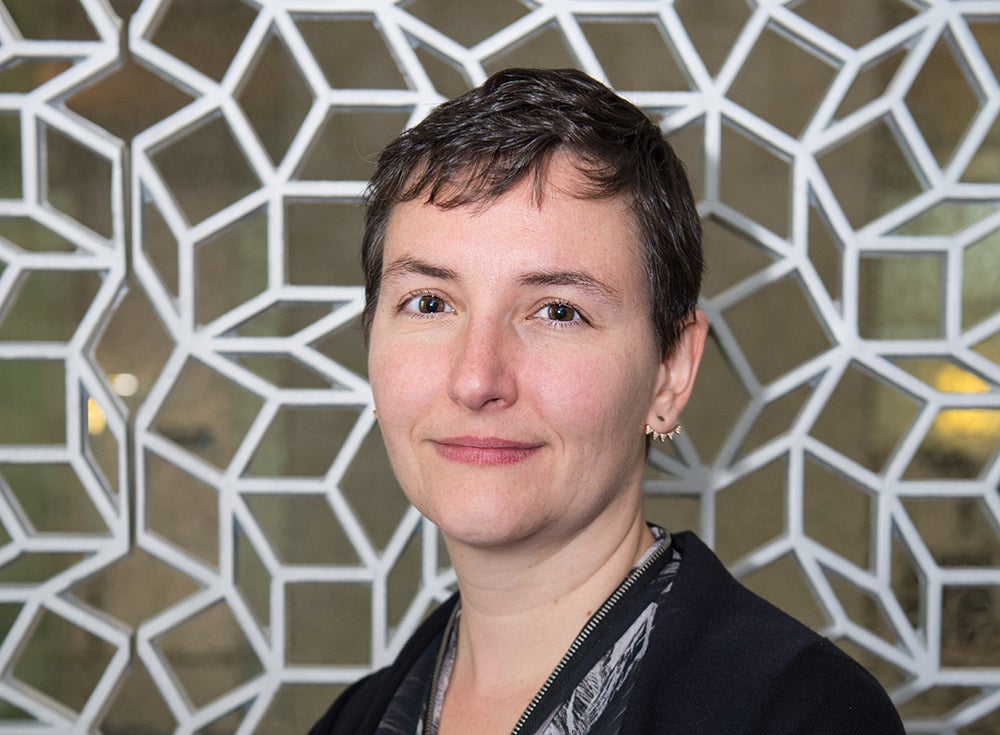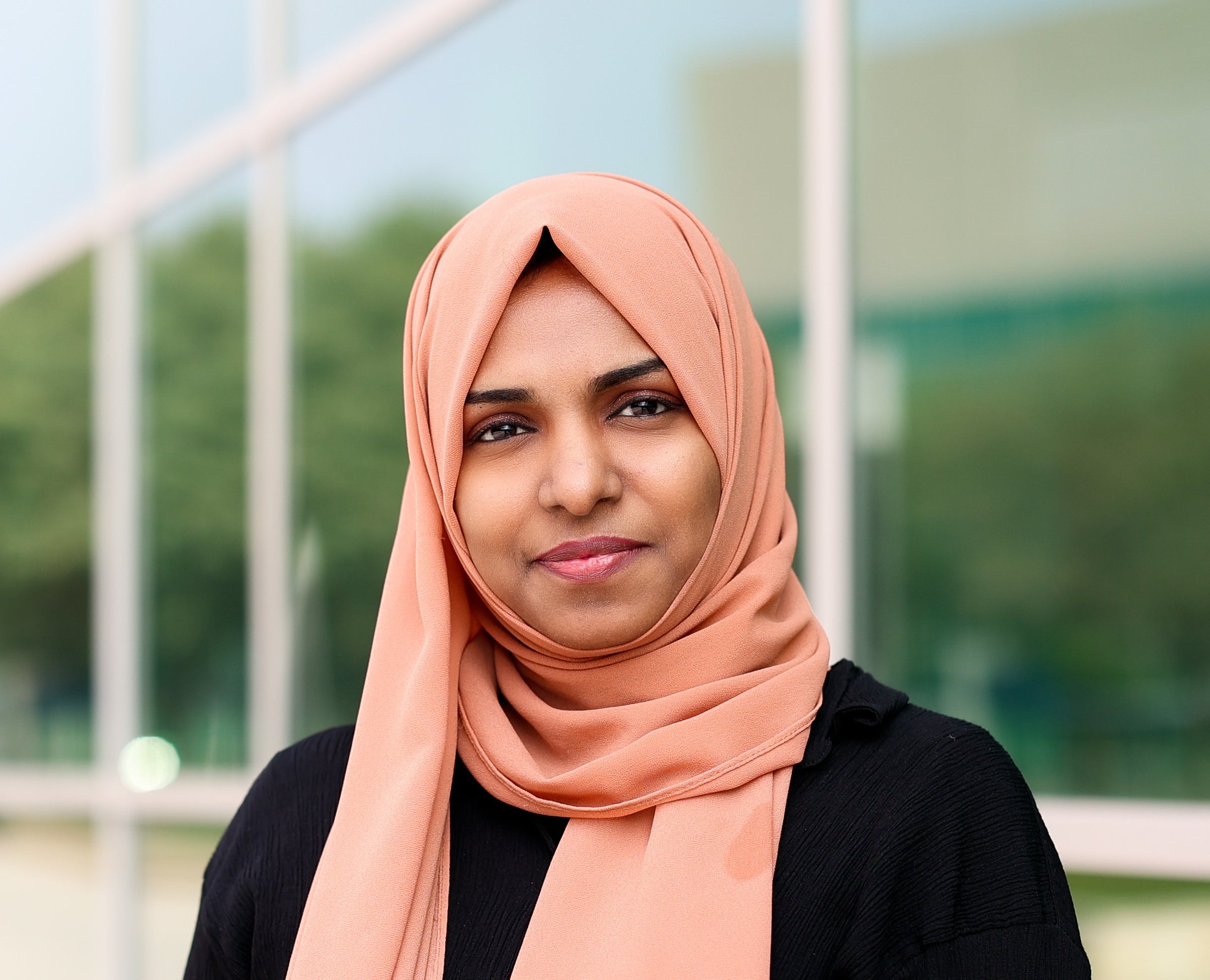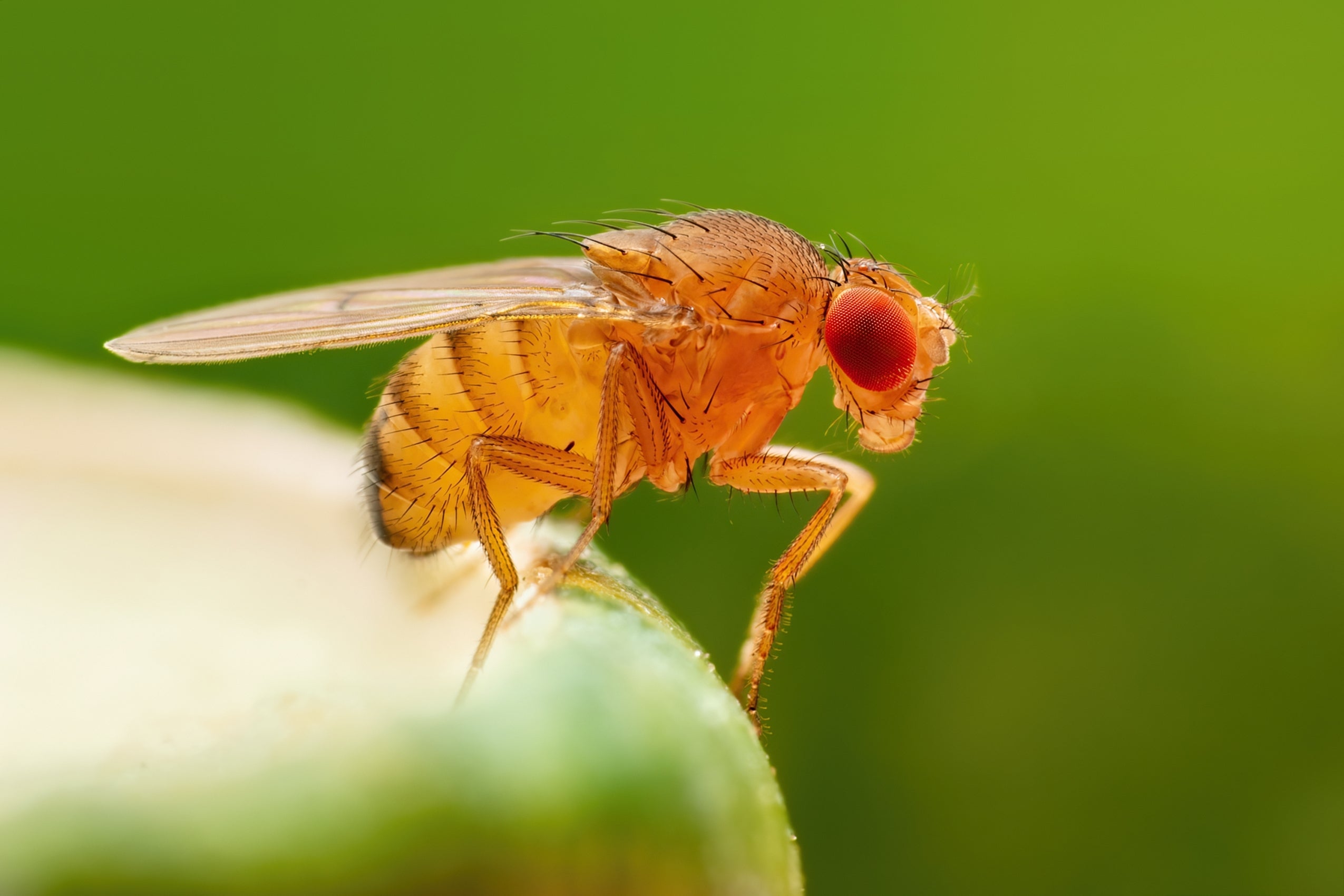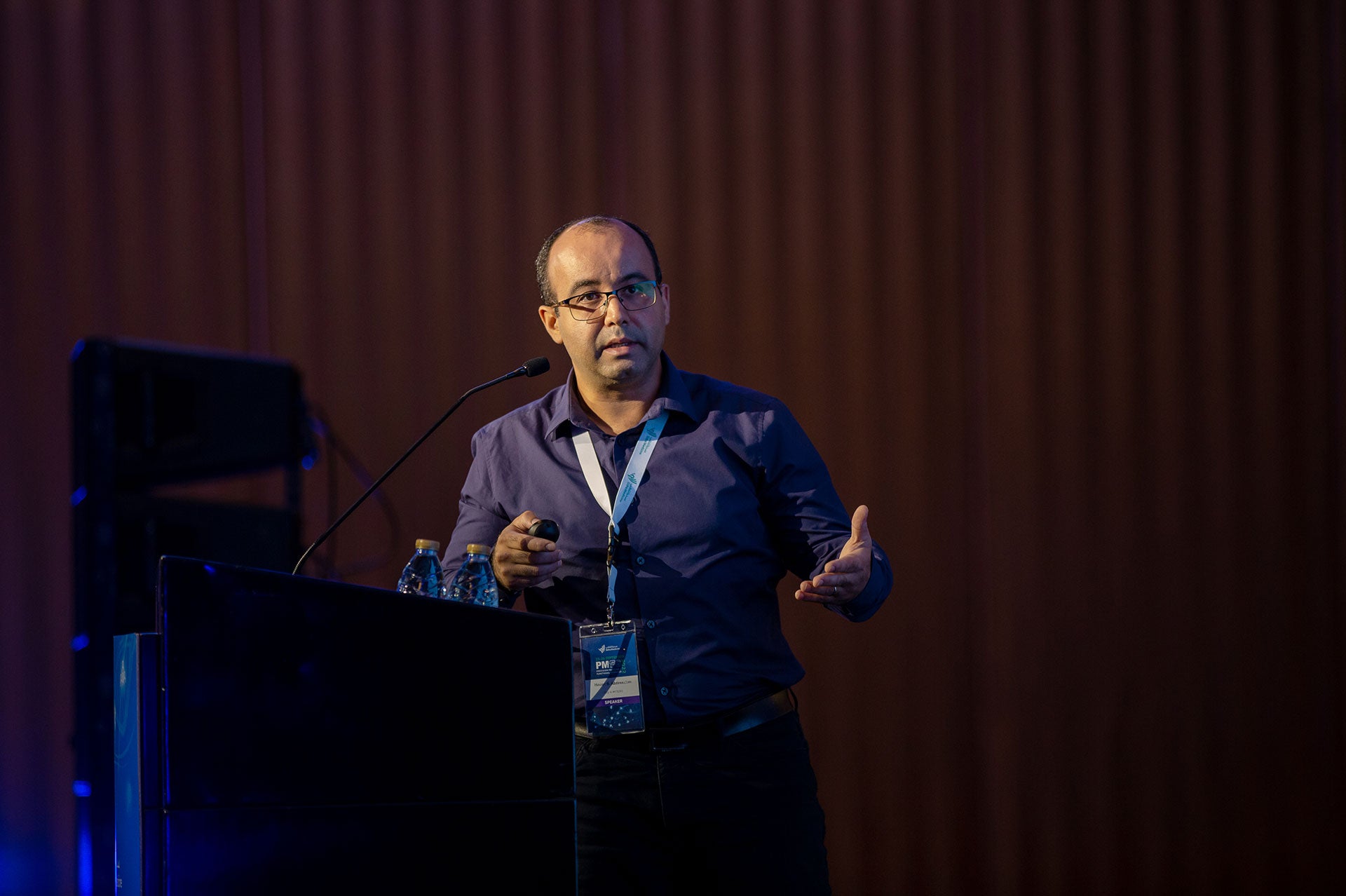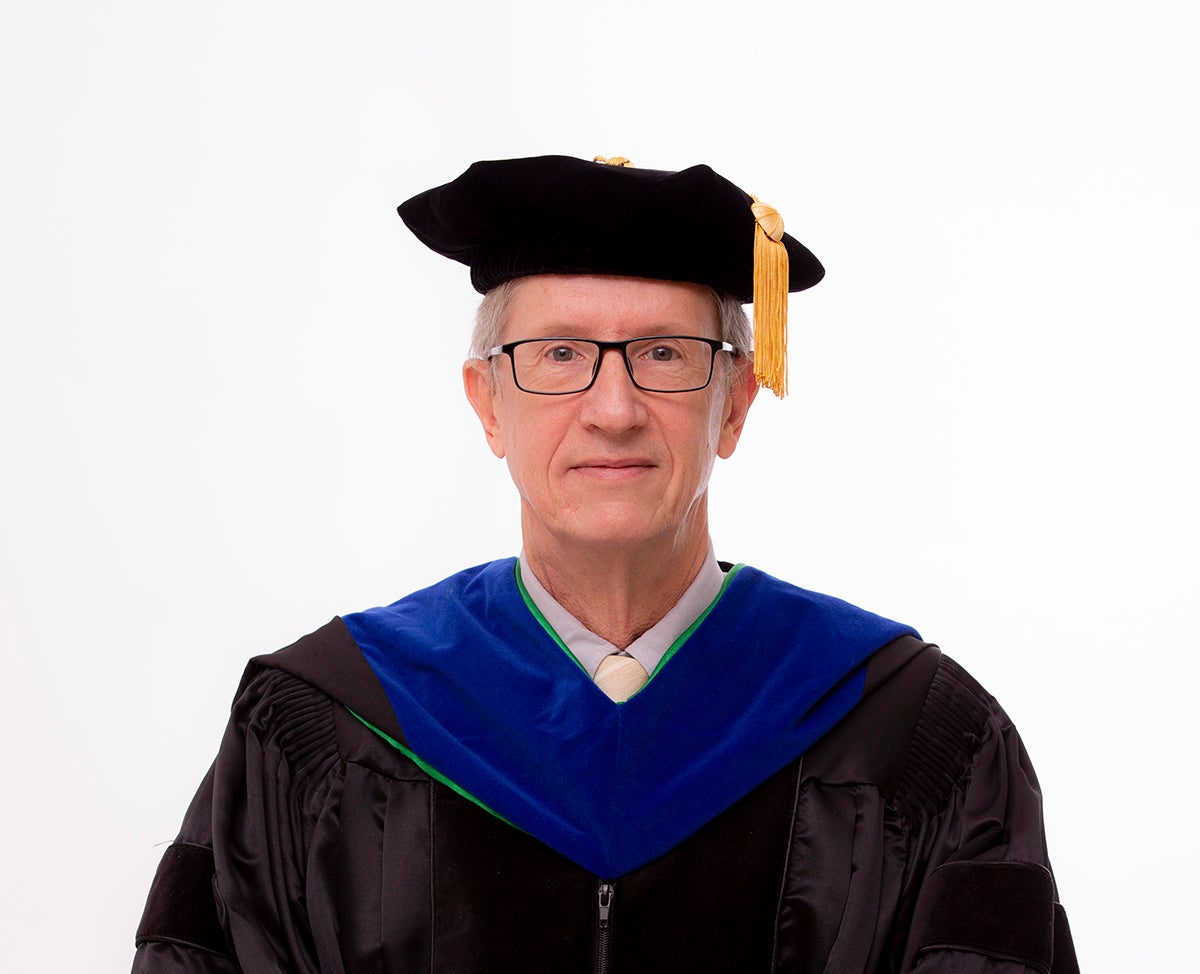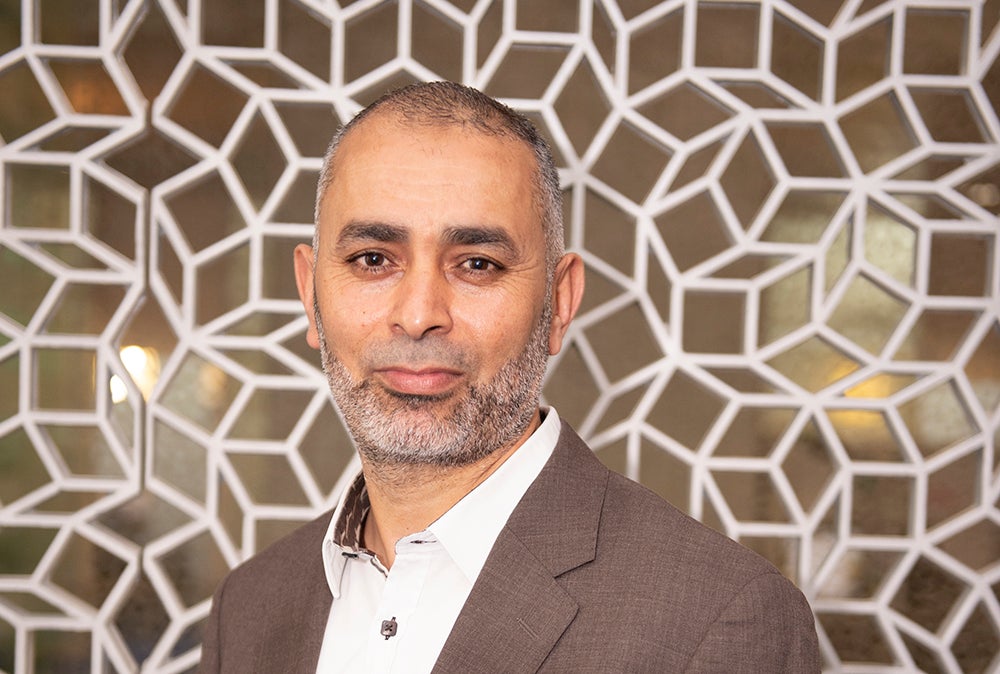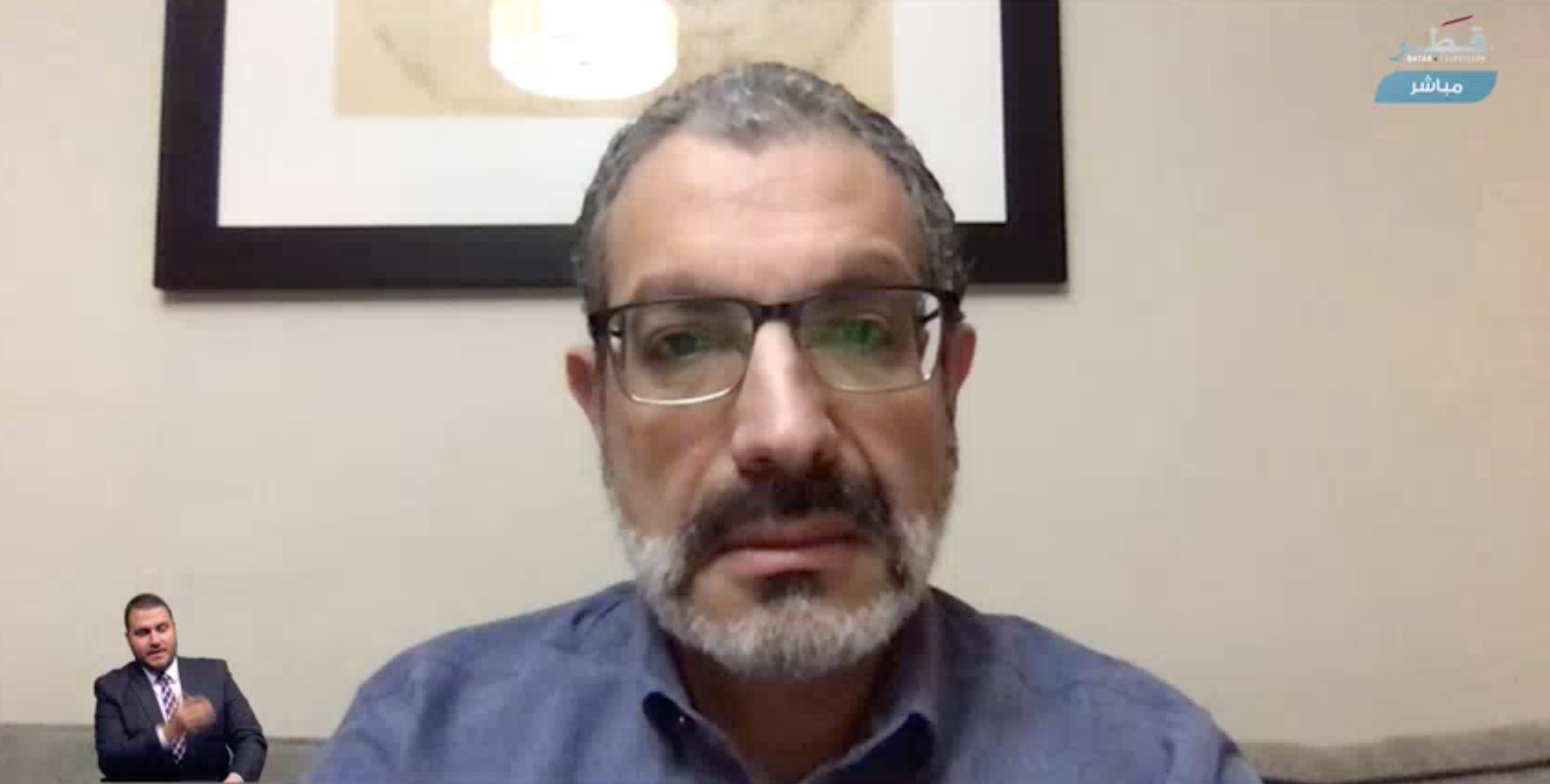
HBKU’s College of Health and Life Sciences Collaborates on Computational Analysis for Potential Drug Repurposing
COVID-19 study highlighted need for a more data-driven approach to validate potential therapeutic targets

The College of Health and Life Sciences (CHLS) at Hamad Bin Khalifa University (HBKU) has participated in a major collaborative research project using computational approaches to identify drug repurposing opportunities for treating COVID-19.
Dr. Georges Nemer, a professor at CHLS, provided substantial genomic guidance and was part of a research team led by Dr. Nehme El-Hachem, a computational systems biology researcher, Faculty of Medicine, American University of Beirut, Lebanon, and CHU Sainte-Justine Research Centre; Dr. Moutih Rafei, professor of pharmacology, immunology and physiology, University of Montreal, Canada; along with Dr. Mazen Kurban, professor of dermatology, and biochemistry and molecular genetics at the American University of Beirut, Lebanon; and other senior international researchers. Their paper, Integrative Transcriptome Analyses Empower the Anti-COVID-19 Drug Arsenal, has been published in iScience, a leading interdisciplinary open access journal.
The study was motivated by the urgency of the global pandemic and the difficulties in developing new drug candidates to effectively treat COVID-19, which is caused by SARS-CoV-2. To fulfil this need, repurposing drugs developed for treating other diseases represented a rapid approach. Although vaccination is a preventive measure against COVID-19, researchers are working day and night to identify drugs that attenuates inflammation and fibrosis in infected patients with mild to severe acute respiratory syndrome.
The team’s rigorous data-driven computational analysis, which integrated three types of data, provides the largest set of pre-clinical candidates and US Food and Drug Administration (FDA)-approved drugs with known safety profiles to be further investigated for COVID-19 treatment. The study confirmed that the identified drugs interfere with the molecular hallmarks of the SARS-CoV-2 infection. Further clinical investigation of these FDA-approved candidates, as monotherapy or in combination with an antiviral regimen such as remdesivir, could lead to promising outcomes in patients with COVID-19.
Dr. Edward Stuenkel, Founding Dean, CHLS, said: “What the research highlights is the need for more data-driven discoveries of the type that proved vital for COVID-19, where there was a need for an immediate call of action. The nature of the challenge we faced was such that collaboration and a wide range of clinical insights and immunology expertise proved vital, aligning with the value we place on transdisciplinary collaborations at CHLS. It is our hope that the research findings will encourage us to think more creatively about how we can use computational analysis as a viable avenue to validate potential therapeutic targets.”
For more information on the work of the College of Health and Life Sciences, please visit chls.hbku.edu.qa
Related News
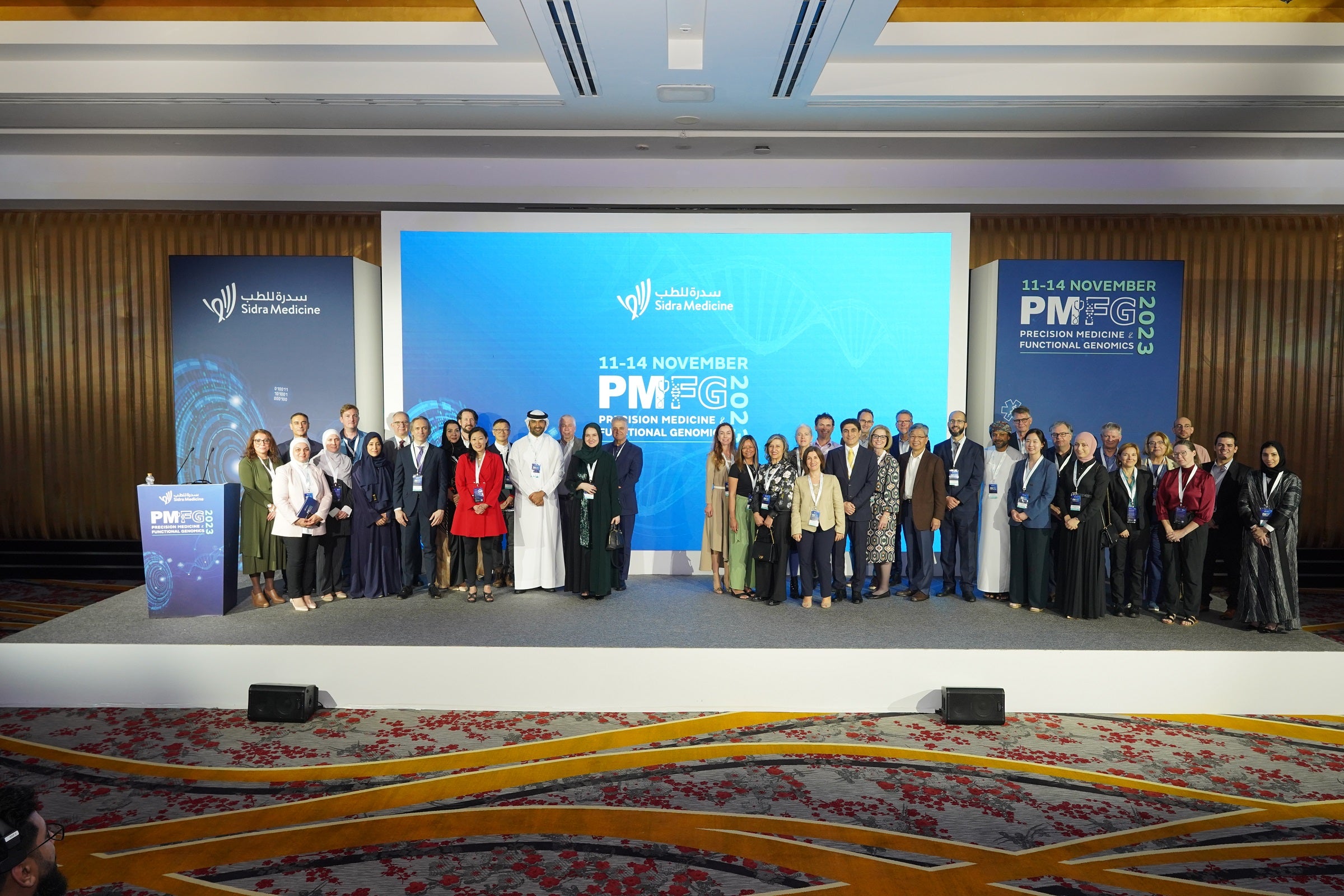
HBKU Participates at Sidra Medicine’s 9th Precision Medicine and Functional Genomics Conference
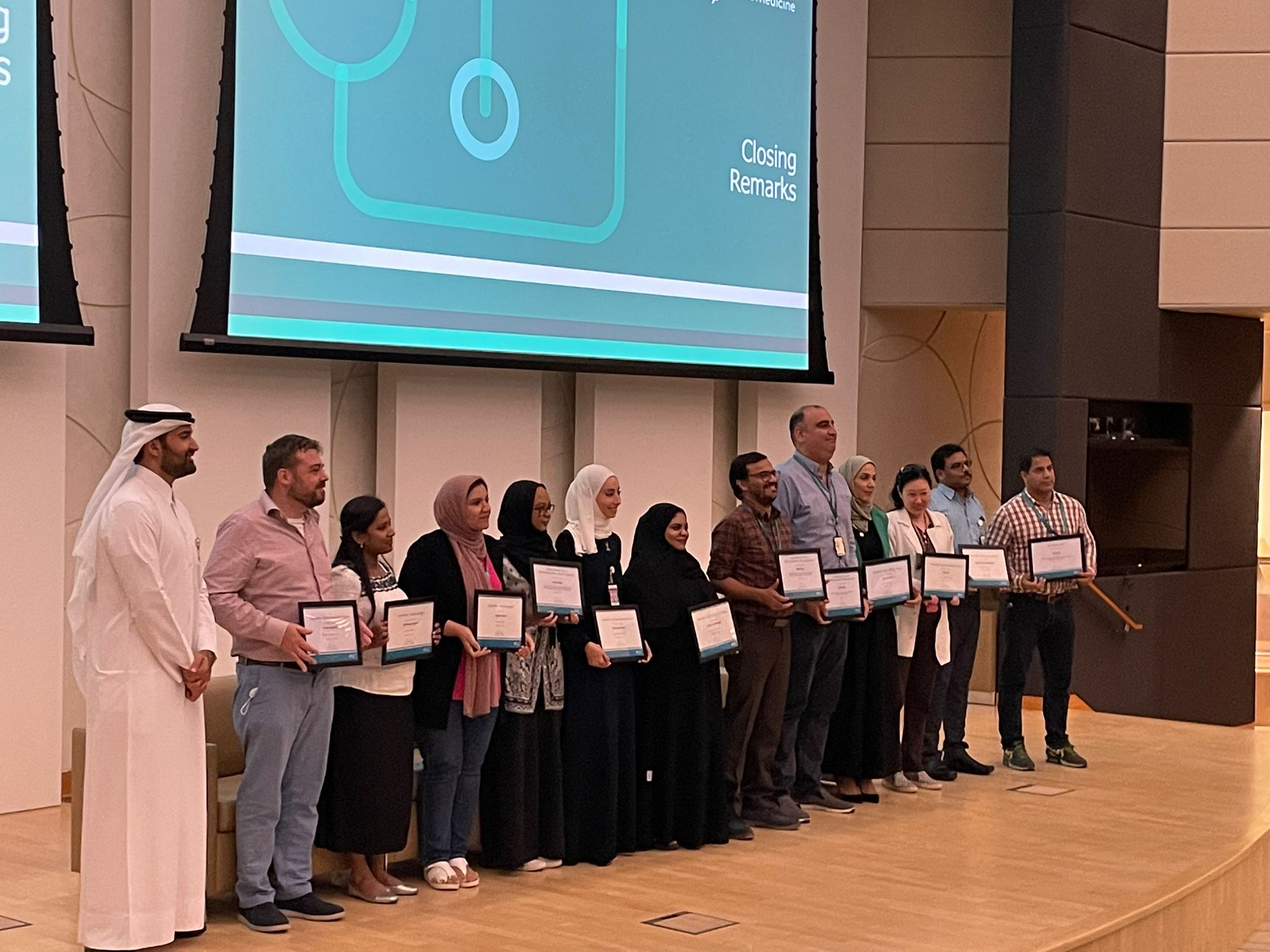
Doctorate Student at HBKU’s College of Health and Life Sciences Receives Specialist Author Award
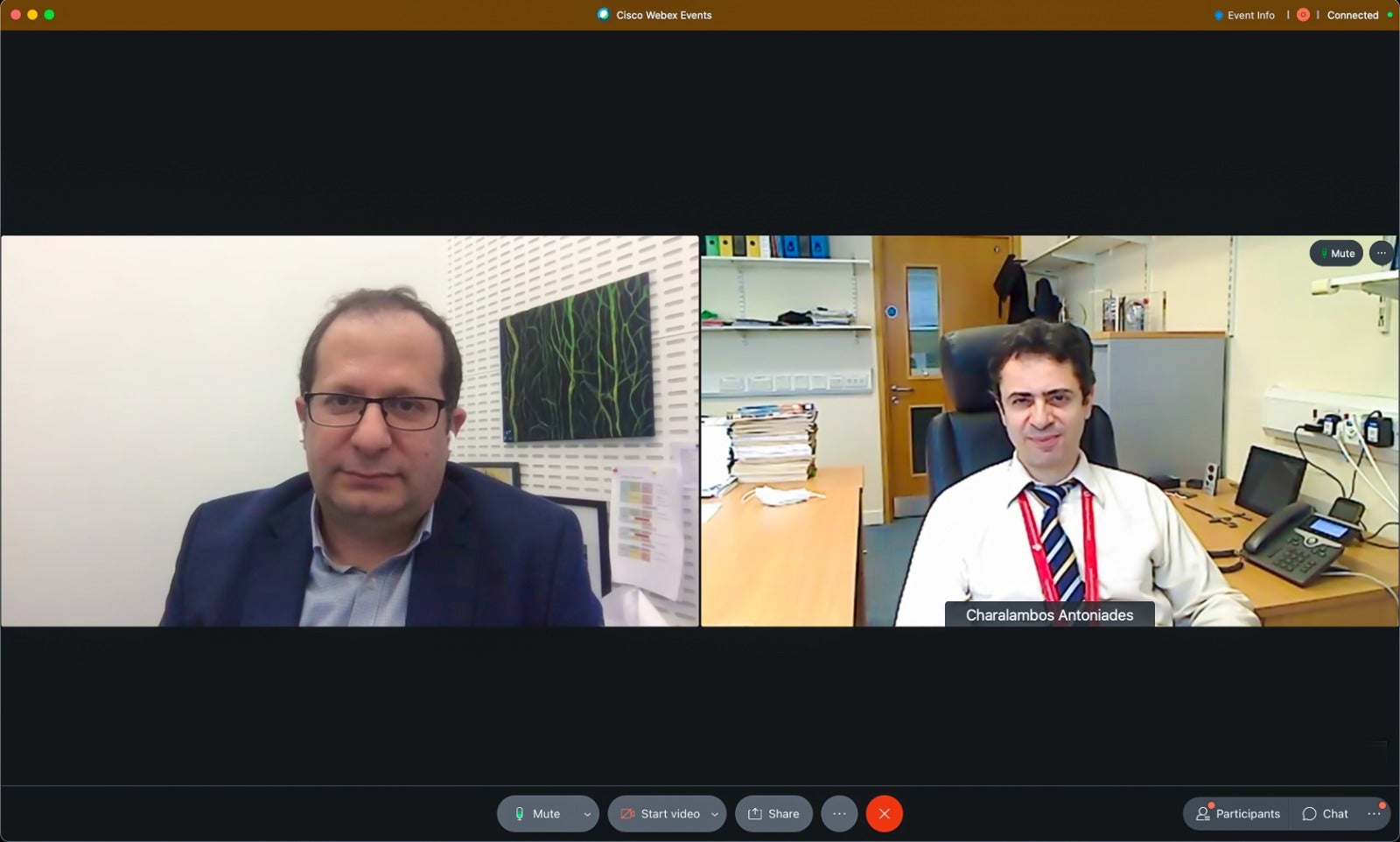
CHLS Presents Webinar on Advances in Early Detection of Heart and Brain Diseases

Vaccination is Vital Not Only for Individual Health but Also to Thwart the Pandemic

College of Health and Life Sciences Highlights Graduate Degree Programs at Virtual Information Session
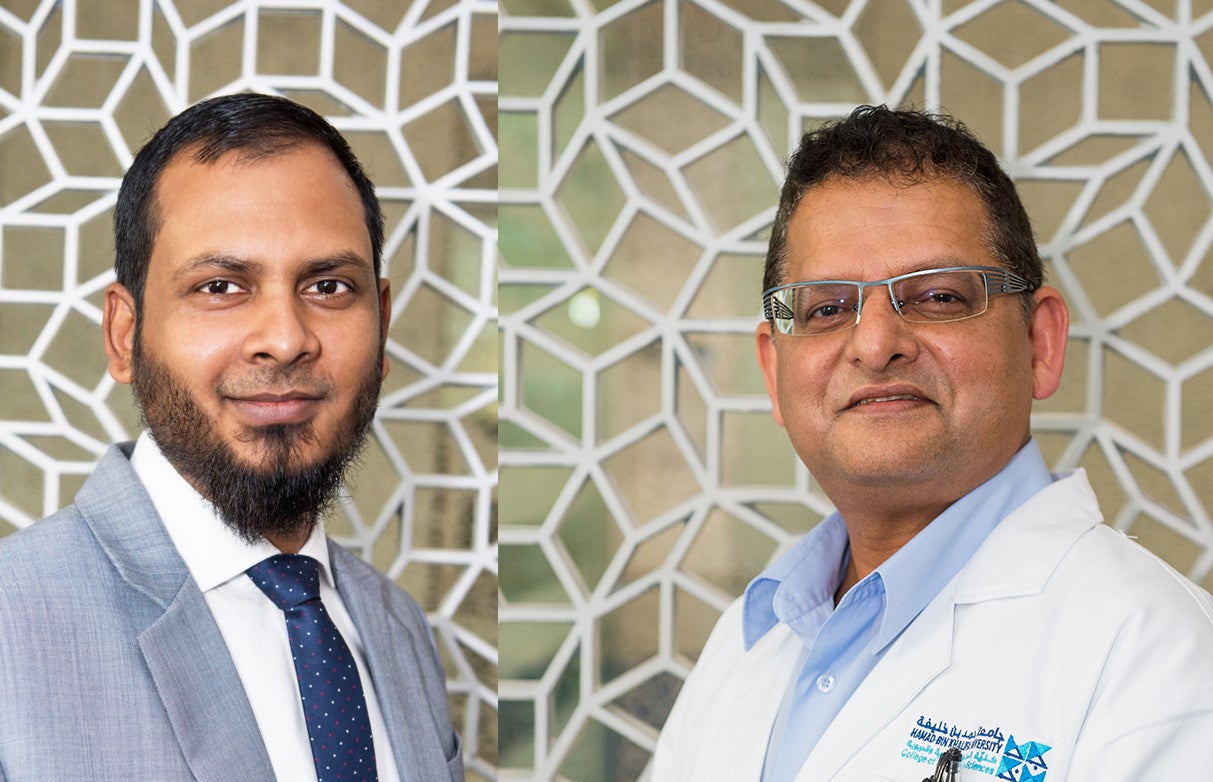
HBKU’s College of Health and Life Sciences Highlights Potential New Applications for Selective Enzyme Inhibitors in Leading Journal

HBKU’s College of Health and Life Science Highlights Potential for Research Exchange at Qatar-Poland Roundtable
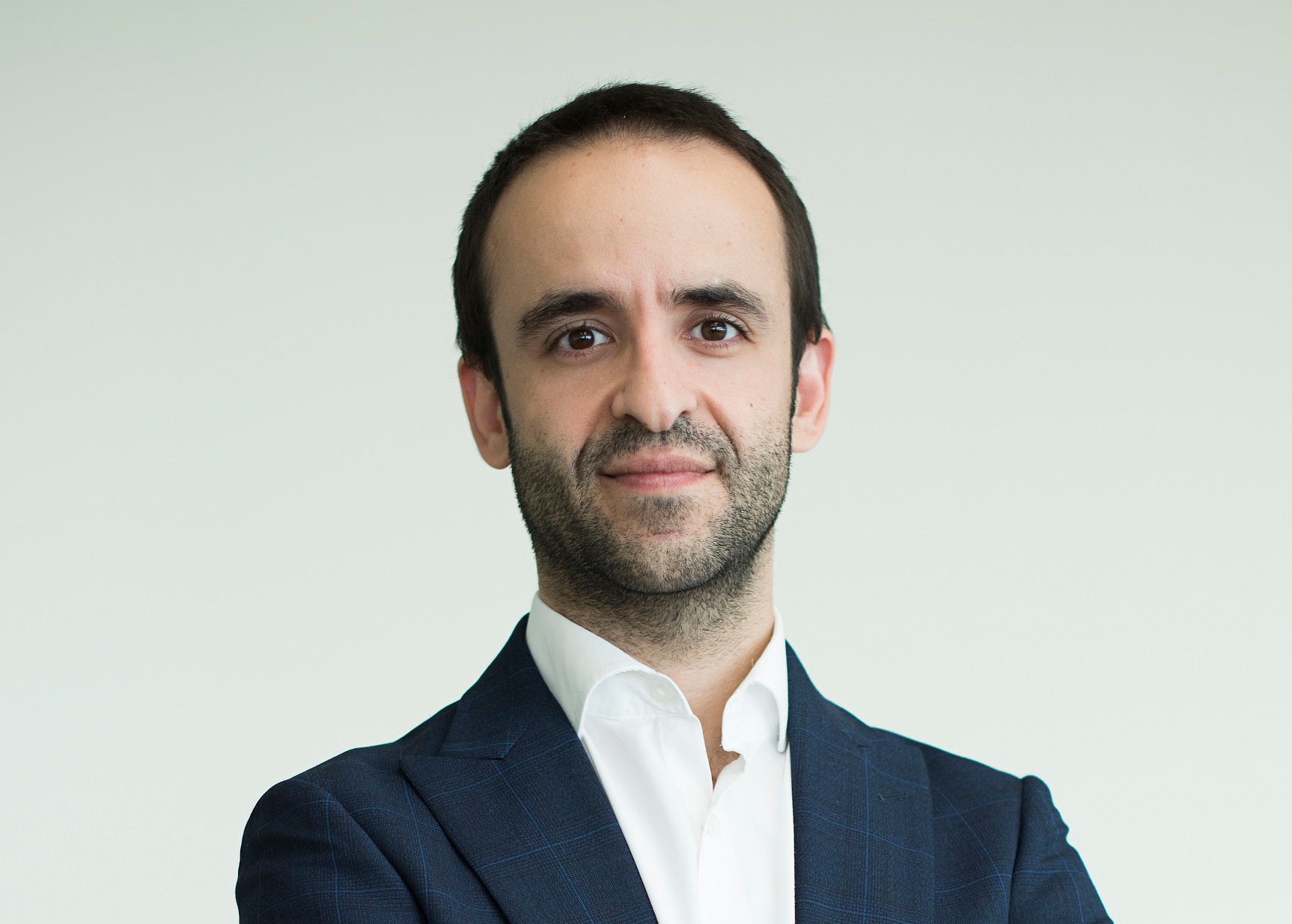
HBKU’s College of Health and Life Sciences Participates at Sidra Medicine's Precision Medicine and Functional Genomics Symposium
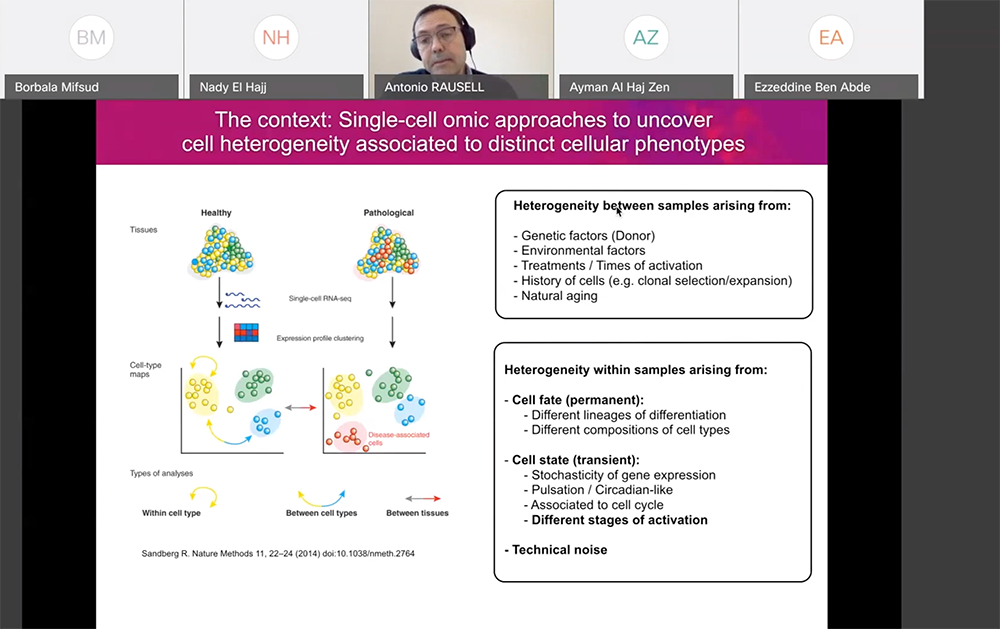
HBKU’s College of Health and Life Sciences Organizes Single-Cell Genomics Symposium

HBKU Participates at Sidra Medicine’s 9th Precision Medicine and Functional Genomics Conference

Doctorate Student at HBKU’s College of Health and Life Sciences Receives Specialist Author Award

CHLS Presents Webinar on Advances in Early Detection of Heart and Brain Diseases

Vaccination is Vital Not Only for Individual Health but Also to Thwart the Pandemic

College of Health and Life Sciences Highlights Graduate Degree Programs at Virtual Information Session

HBKU’s College of Health and Life Sciences Highlights Potential New Applications for Selective Enzyme Inhibitors in Leading Journal

HBKU’s College of Health and Life Science Highlights Potential for Research Exchange at Qatar-Poland Roundtable

HBKU’s College of Health and Life Sciences Participates at Sidra Medicine's Precision Medicine and Functional Genomics Symposium

HBKU’s College of Health and Life Sciences Organizes Single-Cell Genomics Symposium

HBKU Participates at Sidra Medicine’s 9th Precision Medicine and Functional Genomics Conference

Doctorate Student at HBKU’s College of Health and Life Sciences Receives Specialist Author Award

CHLS Presents Webinar on Advances in Early Detection of Heart and Brain Diseases

Vaccination is Vital Not Only for Individual Health but Also to Thwart the Pandemic

College of Health and Life Sciences Highlights Graduate Degree Programs at Virtual Information Session

HBKU’s College of Health and Life Sciences Highlights Potential New Applications for Selective Enzyme Inhibitors in Leading Journal

HBKU’s College of Health and Life Science Highlights Potential for Research Exchange at Qatar-Poland Roundtable

HBKU’s College of Health and Life Sciences Participates at Sidra Medicine's Precision Medicine and Functional Genomics Symposium

HBKU’s College of Health and Life Sciences Organizes Single-Cell Genomics Symposium

HBKU Participates at Sidra Medicine’s 9th Precision Medicine and Functional Genomics Conference

Doctorate Student at HBKU’s College of Health and Life Sciences Receives Specialist Author Award

CHLS Presents Webinar on Advances in Early Detection of Heart and Brain Diseases

Vaccination is Vital Not Only for Individual Health but Also to Thwart the Pandemic

College of Health and Life Sciences Highlights Graduate Degree Programs at Virtual Information Session

HBKU’s College of Health and Life Sciences Highlights Potential New Applications for Selective Enzyme Inhibitors in Leading Journal

HBKU’s College of Health and Life Science Highlights Potential for Research Exchange at Qatar-Poland Roundtable

HBKU’s College of Health and Life Sciences Participates at Sidra Medicine's Precision Medicine and Functional Genomics Symposium

HBKU’s College of Health and Life Sciences Organizes Single-Cell Genomics Symposium

HBKU Participates at Sidra Medicine’s 9th Precision Medicine and Functional Genomics Conference

Doctorate Student at HBKU’s College of Health and Life Sciences Receives Specialist Author Award

CHLS Presents Webinar on Advances in Early Detection of Heart and Brain Diseases

Vaccination is Vital Not Only for Individual Health but Also to Thwart the Pandemic

College of Health and Life Sciences Highlights Graduate Degree Programs at Virtual Information Session

HBKU’s College of Health and Life Sciences Highlights Potential New Applications for Selective Enzyme Inhibitors in Leading Journal

HBKU’s College of Health and Life Science Highlights Potential for Research Exchange at Qatar-Poland Roundtable

HBKU’s College of Health and Life Sciences Participates at Sidra Medicine's Precision Medicine and Functional Genomics Symposium

HBKU’s College of Health and Life Sciences Organizes Single-Cell Genomics Symposium

HBKU Participates at Sidra Medicine’s 9th Precision Medicine and Functional Genomics Conference

Doctorate Student at HBKU’s College of Health and Life Sciences Receives Specialist Author Award

CHLS Presents Webinar on Advances in Early Detection of Heart and Brain Diseases

Vaccination is Vital Not Only for Individual Health but Also to Thwart the Pandemic

College of Health and Life Sciences Highlights Graduate Degree Programs at Virtual Information Session

HBKU’s College of Health and Life Sciences Highlights Potential New Applications for Selective Enzyme Inhibitors in Leading Journal

HBKU’s College of Health and Life Science Highlights Potential for Research Exchange at Qatar-Poland Roundtable

HBKU’s College of Health and Life Sciences Participates at Sidra Medicine's Precision Medicine and Functional Genomics Symposium

HBKU’s College of Health and Life Sciences Organizes Single-Cell Genomics Symposium

HBKU Participates at Sidra Medicine’s 9th Precision Medicine and Functional Genomics Conference

Doctorate Student at HBKU’s College of Health and Life Sciences Receives Specialist Author Award

CHLS Presents Webinar on Advances in Early Detection of Heart and Brain Diseases

Vaccination is Vital Not Only for Individual Health but Also to Thwart the Pandemic

College of Health and Life Sciences Highlights Graduate Degree Programs at Virtual Information Session

HBKU’s College of Health and Life Sciences Highlights Potential New Applications for Selective Enzyme Inhibitors in Leading Journal

HBKU’s College of Health and Life Science Highlights Potential for Research Exchange at Qatar-Poland Roundtable

HBKU’s College of Health and Life Sciences Participates at Sidra Medicine's Precision Medicine and Functional Genomics Symposium

HBKU’s College of Health and Life Sciences Organizes Single-Cell Genomics Symposium

HBKU Participates at Sidra Medicine’s 9th Precision Medicine and Functional Genomics Conference

Doctorate Student at HBKU’s College of Health and Life Sciences Receives Specialist Author Award

CHLS Presents Webinar on Advances in Early Detection of Heart and Brain Diseases

Vaccination is Vital Not Only for Individual Health but Also to Thwart the Pandemic

College of Health and Life Sciences Highlights Graduate Degree Programs at Virtual Information Session

HBKU’s College of Health and Life Sciences Highlights Potential New Applications for Selective Enzyme Inhibitors in Leading Journal

HBKU’s College of Health and Life Science Highlights Potential for Research Exchange at Qatar-Poland Roundtable

HBKU’s College of Health and Life Sciences Participates at Sidra Medicine's Precision Medicine and Functional Genomics Symposium

HBKU’s College of Health and Life Sciences Organizes Single-Cell Genomics Symposium

HBKU Participates at Sidra Medicine’s 9th Precision Medicine and Functional Genomics Conference

Doctorate Student at HBKU’s College of Health and Life Sciences Receives Specialist Author Award

CHLS Presents Webinar on Advances in Early Detection of Heart and Brain Diseases

Vaccination is Vital Not Only for Individual Health but Also to Thwart the Pandemic

College of Health and Life Sciences Highlights Graduate Degree Programs at Virtual Information Session

HBKU’s College of Health and Life Sciences Highlights Potential New Applications for Selective Enzyme Inhibitors in Leading Journal

HBKU’s College of Health and Life Science Highlights Potential for Research Exchange at Qatar-Poland Roundtable

HBKU’s College of Health and Life Sciences Participates at Sidra Medicine's Precision Medicine and Functional Genomics Symposium

HBKU’s College of Health and Life Sciences Organizes Single-Cell Genomics Symposium

HBKU Participates at Sidra Medicine’s 9th Precision Medicine and Functional Genomics Conference

Doctorate Student at HBKU’s College of Health and Life Sciences Receives Specialist Author Award

CHLS Presents Webinar on Advances in Early Detection of Heart and Brain Diseases

Vaccination is Vital Not Only for Individual Health but Also to Thwart the Pandemic

College of Health and Life Sciences Highlights Graduate Degree Programs at Virtual Information Session

HBKU’s College of Health and Life Sciences Highlights Potential New Applications for Selective Enzyme Inhibitors in Leading Journal

HBKU’s College of Health and Life Science Highlights Potential for Research Exchange at Qatar-Poland Roundtable

HBKU’s College of Health and Life Sciences Participates at Sidra Medicine's Precision Medicine and Functional Genomics Symposium

HBKU’s College of Health and Life Sciences Organizes Single-Cell Genomics Symposium

HBKU Participates at Sidra Medicine’s 9th Precision Medicine and Functional Genomics Conference

Doctorate Student at HBKU’s College of Health and Life Sciences Receives Specialist Author Award

CHLS Presents Webinar on Advances in Early Detection of Heart and Brain Diseases

Vaccination is Vital Not Only for Individual Health but Also to Thwart the Pandemic

College of Health and Life Sciences Highlights Graduate Degree Programs at Virtual Information Session

HBKU’s College of Health and Life Sciences Highlights Potential New Applications for Selective Enzyme Inhibitors in Leading Journal

HBKU’s College of Health and Life Science Highlights Potential for Research Exchange at Qatar-Poland Roundtable

HBKU’s College of Health and Life Sciences Participates at Sidra Medicine's Precision Medicine and Functional Genomics Symposium

HBKU’s College of Health and Life Sciences Organizes Single-Cell Genomics Symposium

HBKU Participates at Sidra Medicine’s 9th Precision Medicine and Functional Genomics Conference

Doctorate Student at HBKU’s College of Health and Life Sciences Receives Specialist Author Award

CHLS Presents Webinar on Advances in Early Detection of Heart and Brain Diseases

Vaccination is Vital Not Only for Individual Health but Also to Thwart the Pandemic

College of Health and Life Sciences Highlights Graduate Degree Programs at Virtual Information Session

HBKU’s College of Health and Life Sciences Highlights Potential New Applications for Selective Enzyme Inhibitors in Leading Journal

HBKU’s College of Health and Life Science Highlights Potential for Research Exchange at Qatar-Poland Roundtable

HBKU’s College of Health and Life Sciences Participates at Sidra Medicine's Precision Medicine and Functional Genomics Symposium

HBKU’s College of Health and Life Sciences Organizes Single-Cell Genomics Symposium

HBKU Participates at Sidra Medicine’s 9th Precision Medicine and Functional Genomics Conference

Doctorate Student at HBKU’s College of Health and Life Sciences Receives Specialist Author Award

CHLS Presents Webinar on Advances in Early Detection of Heart and Brain Diseases

Vaccination is Vital Not Only for Individual Health but Also to Thwart the Pandemic

College of Health and Life Sciences Highlights Graduate Degree Programs at Virtual Information Session

HBKU’s College of Health and Life Sciences Highlights Potential New Applications for Selective Enzyme Inhibitors in Leading Journal

HBKU’s College of Health and Life Science Highlights Potential for Research Exchange at Qatar-Poland Roundtable

HBKU’s College of Health and Life Sciences Participates at Sidra Medicine's Precision Medicine and Functional Genomics Symposium

HBKU’s College of Health and Life Sciences Organizes Single-Cell Genomics Symposium

HBKU Participates at Sidra Medicine’s 9th Precision Medicine and Functional Genomics Conference

Doctorate Student at HBKU’s College of Health and Life Sciences Receives Specialist Author Award

CHLS Presents Webinar on Advances in Early Detection of Heart and Brain Diseases

Vaccination is Vital Not Only for Individual Health but Also to Thwart the Pandemic

College of Health and Life Sciences Highlights Graduate Degree Programs at Virtual Information Session

HBKU’s College of Health and Life Sciences Highlights Potential New Applications for Selective Enzyme Inhibitors in Leading Journal

HBKU’s College of Health and Life Science Highlights Potential for Research Exchange at Qatar-Poland Roundtable

HBKU’s College of Health and Life Sciences Participates at Sidra Medicine's Precision Medicine and Functional Genomics Symposium

HBKU’s College of Health and Life Sciences Organizes Single-Cell Genomics Symposium

HBKU Participates at Sidra Medicine’s 9th Precision Medicine and Functional Genomics Conference

Doctorate Student at HBKU’s College of Health and Life Sciences Receives Specialist Author Award

CHLS Presents Webinar on Advances in Early Detection of Heart and Brain Diseases

Vaccination is Vital Not Only for Individual Health but Also to Thwart the Pandemic

College of Health and Life Sciences Highlights Graduate Degree Programs at Virtual Information Session

HBKU’s College of Health and Life Sciences Highlights Potential New Applications for Selective Enzyme Inhibitors in Leading Journal

HBKU’s College of Health and Life Science Highlights Potential for Research Exchange at Qatar-Poland Roundtable

HBKU’s College of Health and Life Sciences Participates at Sidra Medicine's Precision Medicine and Functional Genomics Symposium

HBKU’s College of Health and Life Sciences Organizes Single-Cell Genomics Symposium

HBKU Participates at Sidra Medicine’s 9th Precision Medicine and Functional Genomics Conference

Doctorate Student at HBKU’s College of Health and Life Sciences Receives Specialist Author Award

CHLS Presents Webinar on Advances in Early Detection of Heart and Brain Diseases

Vaccination is Vital Not Only for Individual Health but Also to Thwart the Pandemic

College of Health and Life Sciences Highlights Graduate Degree Programs at Virtual Information Session

HBKU’s College of Health and Life Sciences Highlights Potential New Applications for Selective Enzyme Inhibitors in Leading Journal

HBKU’s College of Health and Life Science Highlights Potential for Research Exchange at Qatar-Poland Roundtable

HBKU’s College of Health and Life Sciences Participates at Sidra Medicine's Precision Medicine and Functional Genomics Symposium

HBKU’s College of Health and Life Sciences Organizes Single-Cell Genomics Symposium

HBKU Participates at Sidra Medicine’s 9th Precision Medicine and Functional Genomics Conference

Doctorate Student at HBKU’s College of Health and Life Sciences Receives Specialist Author Award

CHLS Presents Webinar on Advances in Early Detection of Heart and Brain Diseases

Vaccination is Vital Not Only for Individual Health but Also to Thwart the Pandemic

College of Health and Life Sciences Highlights Graduate Degree Programs at Virtual Information Session

HBKU’s College of Health and Life Sciences Highlights Potential New Applications for Selective Enzyme Inhibitors in Leading Journal

HBKU’s College of Health and Life Science Highlights Potential for Research Exchange at Qatar-Poland Roundtable

HBKU’s College of Health and Life Sciences Participates at Sidra Medicine's Precision Medicine and Functional Genomics Symposium

HBKU’s College of Health and Life Sciences Organizes Single-Cell Genomics Symposium

HBKU Participates at Sidra Medicine’s 9th Precision Medicine and Functional Genomics Conference

Doctorate Student at HBKU’s College of Health and Life Sciences Receives Specialist Author Award

CHLS Presents Webinar on Advances in Early Detection of Heart and Brain Diseases

Vaccination is Vital Not Only for Individual Health but Also to Thwart the Pandemic

College of Health and Life Sciences Highlights Graduate Degree Programs at Virtual Information Session

HBKU’s College of Health and Life Sciences Highlights Potential New Applications for Selective Enzyme Inhibitors in Leading Journal

HBKU’s College of Health and Life Science Highlights Potential for Research Exchange at Qatar-Poland Roundtable

HBKU’s College of Health and Life Sciences Participates at Sidra Medicine's Precision Medicine and Functional Genomics Symposium

HBKU’s College of Health and Life Sciences Organizes Single-Cell Genomics Symposium

HBKU Participates at Sidra Medicine’s 9th Precision Medicine and Functional Genomics Conference

Doctorate Student at HBKU’s College of Health and Life Sciences Receives Specialist Author Award

CHLS Presents Webinar on Advances in Early Detection of Heart and Brain Diseases

Vaccination is Vital Not Only for Individual Health but Also to Thwart the Pandemic

College of Health and Life Sciences Highlights Graduate Degree Programs at Virtual Information Session

HBKU’s College of Health and Life Sciences Highlights Potential New Applications for Selective Enzyme Inhibitors in Leading Journal

HBKU’s College of Health and Life Science Highlights Potential for Research Exchange at Qatar-Poland Roundtable

HBKU’s College of Health and Life Sciences Participates at Sidra Medicine's Precision Medicine and Functional Genomics Symposium

HBKU’s College of Health and Life Sciences Organizes Single-Cell Genomics Symposium

HBKU Participates at Sidra Medicine’s 9th Precision Medicine and Functional Genomics Conference

Doctorate Student at HBKU’s College of Health and Life Sciences Receives Specialist Author Award

CHLS Presents Webinar on Advances in Early Detection of Heart and Brain Diseases

Vaccination is Vital Not Only for Individual Health but Also to Thwart the Pandemic

College of Health and Life Sciences Highlights Graduate Degree Programs at Virtual Information Session

HBKU’s College of Health and Life Sciences Highlights Potential New Applications for Selective Enzyme Inhibitors in Leading Journal

HBKU’s College of Health and Life Science Highlights Potential for Research Exchange at Qatar-Poland Roundtable

HBKU’s College of Health and Life Sciences Participates at Sidra Medicine's Precision Medicine and Functional Genomics Symposium

HBKU’s College of Health and Life Sciences Organizes Single-Cell Genomics Symposium

HBKU Participates at Sidra Medicine’s 9th Precision Medicine and Functional Genomics Conference

Doctorate Student at HBKU’s College of Health and Life Sciences Receives Specialist Author Award

CHLS Presents Webinar on Advances in Early Detection of Heart and Brain Diseases

Vaccination is Vital Not Only for Individual Health but Also to Thwart the Pandemic

College of Health and Life Sciences Highlights Graduate Degree Programs at Virtual Information Session

HBKU’s College of Health and Life Sciences Highlights Potential New Applications for Selective Enzyme Inhibitors in Leading Journal

HBKU’s College of Health and Life Science Highlights Potential for Research Exchange at Qatar-Poland Roundtable

HBKU’s College of Health and Life Sciences Participates at Sidra Medicine's Precision Medicine and Functional Genomics Symposium

HBKU’s College of Health and Life Sciences Organizes Single-Cell Genomics Symposium

HBKU Participates at Sidra Medicine’s 9th Precision Medicine and Functional Genomics Conference

Doctorate Student at HBKU’s College of Health and Life Sciences Receives Specialist Author Award

CHLS Presents Webinar on Advances in Early Detection of Heart and Brain Diseases

Vaccination is Vital Not Only for Individual Health but Also to Thwart the Pandemic

College of Health and Life Sciences Highlights Graduate Degree Programs at Virtual Information Session

HBKU’s College of Health and Life Sciences Highlights Potential New Applications for Selective Enzyme Inhibitors in Leading Journal

HBKU’s College of Health and Life Science Highlights Potential for Research Exchange at Qatar-Poland Roundtable

HBKU’s College of Health and Life Sciences Participates at Sidra Medicine's Precision Medicine and Functional Genomics Symposium

HBKU’s College of Health and Life Sciences Organizes Single-Cell Genomics Symposium

HBKU Participates at Sidra Medicine’s 9th Precision Medicine and Functional Genomics Conference

Doctorate Student at HBKU’s College of Health and Life Sciences Receives Specialist Author Award

CHLS Presents Webinar on Advances in Early Detection of Heart and Brain Diseases

Vaccination is Vital Not Only for Individual Health but Also to Thwart the Pandemic

College of Health and Life Sciences Highlights Graduate Degree Programs at Virtual Information Session

HBKU’s College of Health and Life Sciences Highlights Potential New Applications for Selective Enzyme Inhibitors in Leading Journal

HBKU’s College of Health and Life Science Highlights Potential for Research Exchange at Qatar-Poland Roundtable

HBKU’s College of Health and Life Sciences Participates at Sidra Medicine's Precision Medicine and Functional Genomics Symposium

HBKU’s College of Health and Life Sciences Organizes Single-Cell Genomics Symposium

HBKU Participates at Sidra Medicine’s 9th Precision Medicine and Functional Genomics Conference

Doctorate Student at HBKU’s College of Health and Life Sciences Receives Specialist Author Award

CHLS Presents Webinar on Advances in Early Detection of Heart and Brain Diseases

Vaccination is Vital Not Only for Individual Health but Also to Thwart the Pandemic

College of Health and Life Sciences Highlights Graduate Degree Programs at Virtual Information Session

HBKU’s College of Health and Life Sciences Highlights Potential New Applications for Selective Enzyme Inhibitors in Leading Journal

HBKU’s College of Health and Life Science Highlights Potential for Research Exchange at Qatar-Poland Roundtable

HBKU’s College of Health and Life Sciences Participates at Sidra Medicine's Precision Medicine and Functional Genomics Symposium

HBKU’s College of Health and Life Sciences Organizes Single-Cell Genomics Symposium

HBKU Participates at Sidra Medicine’s 9th Precision Medicine and Functional Genomics Conference

Doctorate Student at HBKU’s College of Health and Life Sciences Receives Specialist Author Award

CHLS Presents Webinar on Advances in Early Detection of Heart and Brain Diseases

Vaccination is Vital Not Only for Individual Health but Also to Thwart the Pandemic

College of Health and Life Sciences Highlights Graduate Degree Programs at Virtual Information Session

HBKU’s College of Health and Life Sciences Highlights Potential New Applications for Selective Enzyme Inhibitors in Leading Journal

HBKU’s College of Health and Life Science Highlights Potential for Research Exchange at Qatar-Poland Roundtable

HBKU’s College of Health and Life Sciences Participates at Sidra Medicine's Precision Medicine and Functional Genomics Symposium

HBKU’s College of Health and Life Sciences Organizes Single-Cell Genomics Symposium

HBKU Participates at Sidra Medicine’s 9th Precision Medicine and Functional Genomics Conference

Doctorate Student at HBKU’s College of Health and Life Sciences Receives Specialist Author Award

CHLS Presents Webinar on Advances in Early Detection of Heart and Brain Diseases

Vaccination is Vital Not Only for Individual Health but Also to Thwart the Pandemic

College of Health and Life Sciences Highlights Graduate Degree Programs at Virtual Information Session

HBKU’s College of Health and Life Sciences Highlights Potential New Applications for Selective Enzyme Inhibitors in Leading Journal

HBKU’s College of Health and Life Science Highlights Potential for Research Exchange at Qatar-Poland Roundtable

HBKU’s College of Health and Life Sciences Participates at Sidra Medicine's Precision Medicine and Functional Genomics Symposium

HBKU’s College of Health and Life Sciences Organizes Single-Cell Genomics Symposium

HBKU Participates at Sidra Medicine’s 9th Precision Medicine and Functional Genomics Conference

Doctorate Student at HBKU’s College of Health and Life Sciences Receives Specialist Author Award

CHLS Presents Webinar on Advances in Early Detection of Heart and Brain Diseases

Vaccination is Vital Not Only for Individual Health but Also to Thwart the Pandemic

College of Health and Life Sciences Highlights Graduate Degree Programs at Virtual Information Session

HBKU’s College of Health and Life Sciences Highlights Potential New Applications for Selective Enzyme Inhibitors in Leading Journal

HBKU’s College of Health and Life Science Highlights Potential for Research Exchange at Qatar-Poland Roundtable

HBKU’s College of Health and Life Sciences Participates at Sidra Medicine's Precision Medicine and Functional Genomics Symposium

HBKU’s College of Health and Life Sciences Organizes Single-Cell Genomics Symposium

HBKU Participates at Sidra Medicine’s 9th Precision Medicine and Functional Genomics Conference

Doctorate Student at HBKU’s College of Health and Life Sciences Receives Specialist Author Award

CHLS Presents Webinar on Advances in Early Detection of Heart and Brain Diseases

Vaccination is Vital Not Only for Individual Health but Also to Thwart the Pandemic

College of Health and Life Sciences Highlights Graduate Degree Programs at Virtual Information Session

HBKU’s College of Health and Life Sciences Highlights Potential New Applications for Selective Enzyme Inhibitors in Leading Journal

HBKU’s College of Health and Life Science Highlights Potential for Research Exchange at Qatar-Poland Roundtable

HBKU’s College of Health and Life Sciences Participates at Sidra Medicine's Precision Medicine and Functional Genomics Symposium

HBKU’s College of Health and Life Sciences Organizes Single-Cell Genomics Symposium

HBKU Participates at Sidra Medicine’s 9th Precision Medicine and Functional Genomics Conference

Doctorate Student at HBKU’s College of Health and Life Sciences Receives Specialist Author Award

CHLS Presents Webinar on Advances in Early Detection of Heart and Brain Diseases

Vaccination is Vital Not Only for Individual Health but Also to Thwart the Pandemic

College of Health and Life Sciences Highlights Graduate Degree Programs at Virtual Information Session

HBKU’s College of Health and Life Sciences Highlights Potential New Applications for Selective Enzyme Inhibitors in Leading Journal

HBKU’s College of Health and Life Science Highlights Potential for Research Exchange at Qatar-Poland Roundtable

HBKU’s College of Health and Life Sciences Participates at Sidra Medicine's Precision Medicine and Functional Genomics Symposium

HBKU’s College of Health and Life Sciences Organizes Single-Cell Genomics Symposium

HBKU Participates at Sidra Medicine’s 9th Precision Medicine and Functional Genomics Conference

Doctorate Student at HBKU’s College of Health and Life Sciences Receives Specialist Author Award

CHLS Presents Webinar on Advances in Early Detection of Heart and Brain Diseases

Vaccination is Vital Not Only for Individual Health but Also to Thwart the Pandemic

College of Health and Life Sciences Highlights Graduate Degree Programs at Virtual Information Session

HBKU’s College of Health and Life Sciences Highlights Potential New Applications for Selective Enzyme Inhibitors in Leading Journal

HBKU’s College of Health and Life Science Highlights Potential for Research Exchange at Qatar-Poland Roundtable

HBKU’s College of Health and Life Sciences Participates at Sidra Medicine's Precision Medicine and Functional Genomics Symposium

HBKU’s College of Health and Life Sciences Organizes Single-Cell Genomics Symposium

HBKU Participates at Sidra Medicine’s 9th Precision Medicine and Functional Genomics Conference

Doctorate Student at HBKU’s College of Health and Life Sciences Receives Specialist Author Award

CHLS Presents Webinar on Advances in Early Detection of Heart and Brain Diseases

Vaccination is Vital Not Only for Individual Health but Also to Thwart the Pandemic

College of Health and Life Sciences Highlights Graduate Degree Programs at Virtual Information Session

HBKU’s College of Health and Life Sciences Highlights Potential New Applications for Selective Enzyme Inhibitors in Leading Journal

HBKU’s College of Health and Life Science Highlights Potential for Research Exchange at Qatar-Poland Roundtable

HBKU’s College of Health and Life Sciences Participates at Sidra Medicine's Precision Medicine and Functional Genomics Symposium

HBKU’s College of Health and Life Sciences Organizes Single-Cell Genomics Symposium

HBKU Participates at Sidra Medicine’s 9th Precision Medicine and Functional Genomics Conference

Doctorate Student at HBKU’s College of Health and Life Sciences Receives Specialist Author Award

CHLS Presents Webinar on Advances in Early Detection of Heart and Brain Diseases

Vaccination is Vital Not Only for Individual Health but Also to Thwart the Pandemic

College of Health and Life Sciences Highlights Graduate Degree Programs at Virtual Information Session

HBKU’s College of Health and Life Sciences Highlights Potential New Applications for Selective Enzyme Inhibitors in Leading Journal

HBKU’s College of Health and Life Science Highlights Potential for Research Exchange at Qatar-Poland Roundtable

HBKU’s College of Health and Life Sciences Participates at Sidra Medicine's Precision Medicine and Functional Genomics Symposium

HBKU’s College of Health and Life Sciences Organizes Single-Cell Genomics Symposium

HBKU Participates at Sidra Medicine’s 9th Precision Medicine and Functional Genomics Conference

Doctorate Student at HBKU’s College of Health and Life Sciences Receives Specialist Author Award

CHLS Presents Webinar on Advances in Early Detection of Heart and Brain Diseases

Vaccination is Vital Not Only for Individual Health but Also to Thwart the Pandemic

College of Health and Life Sciences Highlights Graduate Degree Programs at Virtual Information Session

HBKU’s College of Health and Life Sciences Highlights Potential New Applications for Selective Enzyme Inhibitors in Leading Journal

HBKU’s College of Health and Life Science Highlights Potential for Research Exchange at Qatar-Poland Roundtable

HBKU’s College of Health and Life Sciences Participates at Sidra Medicine's Precision Medicine and Functional Genomics Symposium

HBKU’s College of Health and Life Sciences Organizes Single-Cell Genomics Symposium

HBKU Participates at Sidra Medicine’s 9th Precision Medicine and Functional Genomics Conference

Doctorate Student at HBKU’s College of Health and Life Sciences Receives Specialist Author Award

CHLS Presents Webinar on Advances in Early Detection of Heart and Brain Diseases

Vaccination is Vital Not Only for Individual Health but Also to Thwart the Pandemic

College of Health and Life Sciences Highlights Graduate Degree Programs at Virtual Information Session

HBKU’s College of Health and Life Sciences Highlights Potential New Applications for Selective Enzyme Inhibitors in Leading Journal

HBKU’s College of Health and Life Science Highlights Potential for Research Exchange at Qatar-Poland Roundtable

HBKU’s College of Health and Life Sciences Participates at Sidra Medicine's Precision Medicine and Functional Genomics Symposium

HBKU’s College of Health and Life Sciences Organizes Single-Cell Genomics Symposium

HBKU Participates at Sidra Medicine’s 9th Precision Medicine and Functional Genomics Conference

Doctorate Student at HBKU’s College of Health and Life Sciences Receives Specialist Author Award

CHLS Presents Webinar on Advances in Early Detection of Heart and Brain Diseases

Vaccination is Vital Not Only for Individual Health but Also to Thwart the Pandemic

College of Health and Life Sciences Highlights Graduate Degree Programs at Virtual Information Session

HBKU’s College of Health and Life Sciences Highlights Potential New Applications for Selective Enzyme Inhibitors in Leading Journal

HBKU’s College of Health and Life Science Highlights Potential for Research Exchange at Qatar-Poland Roundtable

HBKU’s College of Health and Life Sciences Participates at Sidra Medicine's Precision Medicine and Functional Genomics Symposium

HBKU’s College of Health and Life Sciences Organizes Single-Cell Genomics Symposium

HBKU Participates at Sidra Medicine’s 9th Precision Medicine and Functional Genomics Conference

Doctorate Student at HBKU’s College of Health and Life Sciences Receives Specialist Author Award

CHLS Presents Webinar on Advances in Early Detection of Heart and Brain Diseases

Vaccination is Vital Not Only for Individual Health but Also to Thwart the Pandemic

College of Health and Life Sciences Highlights Graduate Degree Programs at Virtual Information Session

HBKU’s College of Health and Life Sciences Highlights Potential New Applications for Selective Enzyme Inhibitors in Leading Journal

HBKU’s College of Health and Life Science Highlights Potential for Research Exchange at Qatar-Poland Roundtable

HBKU’s College of Health and Life Sciences Participates at Sidra Medicine's Precision Medicine and Functional Genomics Symposium

HBKU’s College of Health and Life Sciences Organizes Single-Cell Genomics Symposium

HBKU Participates at Sidra Medicine’s 9th Precision Medicine and Functional Genomics Conference

Doctorate Student at HBKU’s College of Health and Life Sciences Receives Specialist Author Award

CHLS Presents Webinar on Advances in Early Detection of Heart and Brain Diseases

Vaccination is Vital Not Only for Individual Health but Also to Thwart the Pandemic

College of Health and Life Sciences Highlights Graduate Degree Programs at Virtual Information Session

HBKU’s College of Health and Life Sciences Highlights Potential New Applications for Selective Enzyme Inhibitors in Leading Journal

HBKU’s College of Health and Life Science Highlights Potential for Research Exchange at Qatar-Poland Roundtable

HBKU’s College of Health and Life Sciences Participates at Sidra Medicine's Precision Medicine and Functional Genomics Symposium

HBKU’s College of Health and Life Sciences Organizes Single-Cell Genomics Symposium

HBKU Participates at Sidra Medicine’s 9th Precision Medicine and Functional Genomics Conference

Doctorate Student at HBKU’s College of Health and Life Sciences Receives Specialist Author Award

CHLS Presents Webinar on Advances in Early Detection of Heart and Brain Diseases

Vaccination is Vital Not Only for Individual Health but Also to Thwart the Pandemic

College of Health and Life Sciences Highlights Graduate Degree Programs at Virtual Information Session

HBKU’s College of Health and Life Sciences Highlights Potential New Applications for Selective Enzyme Inhibitors in Leading Journal

HBKU’s College of Health and Life Science Highlights Potential for Research Exchange at Qatar-Poland Roundtable

HBKU’s College of Health and Life Sciences Participates at Sidra Medicine's Precision Medicine and Functional Genomics Symposium

HBKU’s College of Health and Life Sciences Organizes Single-Cell Genomics Symposium

HBKU Participates at Sidra Medicine’s 9th Precision Medicine and Functional Genomics Conference

Doctorate Student at HBKU’s College of Health and Life Sciences Receives Specialist Author Award

CHLS Presents Webinar on Advances in Early Detection of Heart and Brain Diseases

Vaccination is Vital Not Only for Individual Health but Also to Thwart the Pandemic

College of Health and Life Sciences Highlights Graduate Degree Programs at Virtual Information Session

HBKU’s College of Health and Life Sciences Highlights Potential New Applications for Selective Enzyme Inhibitors in Leading Journal

HBKU’s College of Health and Life Science Highlights Potential for Research Exchange at Qatar-Poland Roundtable

HBKU’s College of Health and Life Sciences Participates at Sidra Medicine's Precision Medicine and Functional Genomics Symposium

HBKU’s College of Health and Life Sciences Organizes Single-Cell Genomics Symposium

HBKU Participates at Sidra Medicine’s 9th Precision Medicine and Functional Genomics Conference

Doctorate Student at HBKU’s College of Health and Life Sciences Receives Specialist Author Award

CHLS Presents Webinar on Advances in Early Detection of Heart and Brain Diseases

Vaccination is Vital Not Only for Individual Health but Also to Thwart the Pandemic

College of Health and Life Sciences Highlights Graduate Degree Programs at Virtual Information Session

HBKU’s College of Health and Life Sciences Highlights Potential New Applications for Selective Enzyme Inhibitors in Leading Journal

HBKU’s College of Health and Life Science Highlights Potential for Research Exchange at Qatar-Poland Roundtable

HBKU’s College of Health and Life Sciences Participates at Sidra Medicine's Precision Medicine and Functional Genomics Symposium







